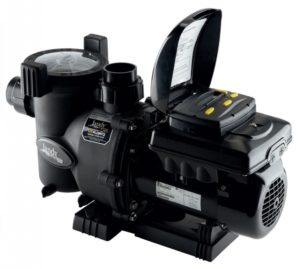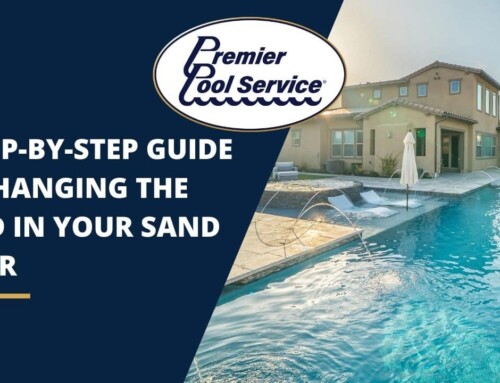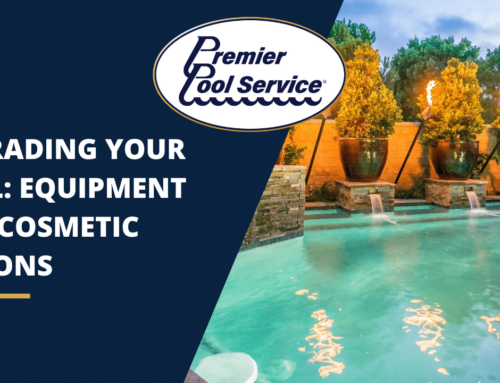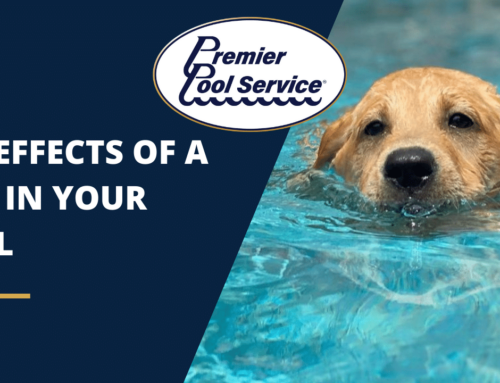So, you are thinking to yourself, how long should I run my pool pump for?
Depending on the efficiency & effectiveness of your filtering system this determines how long you need to run the pool pump. Some other factors you should consider is the time of year, or water temperatures.
The average pool pump runs 12 hours summer, and 6 hours winter; However, there are multiple variables that affect how much filtering your pool water needs.
Filtering systems can fluctuate anywhere between 24 hrs to 6 hrs a day to keep the water clean in the swimming pool.
The question “How Long Should I Run My Pool Pump?” is a question with several follow up questions; such as,
- What type and size of pump and filter do you have?
- What water treatment chemicals or purifiers do you use?
- How much debris enters the pool? Precipitation?
- Temperatures: Air & Water?

Pump & Filter
When a pool builder or pool contractor designs a swimming pool or inground pool, most use an 8-hour turnover formula to size the pool pump and filter. That is, the size of the pump and matching filter is large enough to pump and filter all of the water in the pool, in an 8 hour time period. So, let us help you with the question “How Long Should I Run My Pool Pump?”.
For a 20,000 gallon pool, an 8-hour filter system (pump, filter, valves, pipes) would be designed to produce at least 42 gallons per minute, or gpm.
Nevertheless, in the real world, filters get dirty and pump baskets get clogged with debris, which slows down water flow. Additional equipment like chlorinators, heaters, cleaners are often installed; slowing down flow rates by adding more resistance, requiring filtered pump to run overtime.
Another factor to incorporate is how old your filter is. Older filters, sand or cartridges, just don’t filter as well as they used to, and will require more cleaning and longer pool pump operation times.
And of course, not all pool filters are created equal. There are filters and pumps that work more efficiently; the D.E. pool filters are up to 10x more efficient than sand filters. A sand or cartridge filter will need to run the filter pump longer, than an equivalent sized DE filter.
Water Treatments
How clean is your water? Pools that are over-treated require less pump circulation and filtration, to a certain degree.
Using supplemental water treatments such as Ozone or Minerals can remarkably reduce the amount of chlorine needed. They also purify the water, which would be helping your pool filter significantly.
Specialty chemicals such as Enzymes, Clarifiers and Algaecides can also affect how long you should run the pool pump. Clarifiers are great filter helpers, enzymes remove filter clogging oils, and algaecides prevent tiny spores from growing into visible, filter clogging colonies.
We are all guilty of letting the chlorine level slip from time to time, or finding our water balance is out of whack. Running the filter pump longer each day provides protection against low chlorine or stabilizer levels, or high pH and alkalinity levels.
Debris in the Pool?
This question is pertinent because organic debris sucks up sanitizers, affects water balance and clogs up pumps and filters.
Pools that are in a desert environment can have nearly no debris (sand doesn’t count, it’s inert) – while pools in wooded areas can be prone to leafy & dirt debris from the surrounding landscape of dense forests or lush landscaping.
Debris can stain your pool if the water is stationary for too many hours. Circulation helps prevent staining, and brings micro-particles from leaves, twigs, bugs into the filter.
Heavy rainfall also means you should run the filter pump longer. Rain washes in lots of pollutants, dust and oils, and creates an imbalance in pool chemicals, making the pool more susceptible to the debris contaminating the pool. Heavy rain is a natural variable that you want to avoid when it comes to a swimming pool; which is when pool covers come in handy.
Temperature: Air & Water
During the off-season, with water temperatures below 60°, you can run the pool pump less than 6 hours per day, in most cases. But as the water warms up into the 70’s you should run the pool pump longer each day.
When the pool water reaches the 80’s, your water may need 2 full turnovers to stay clean and clear, or 12 hours at a minimum. For pools that get very warm with long, sunny summer days, you should run the pool pump as long as possible, which means 18 hours or more, so your pool water stays clean.
It is a smart idea to run the pump more when the air & water temperatures rise – but also consider the other factors above; regarding filter effectiveness, water treatments and amount and type of debris and rain in the pool.
What’s the Best Time of Day to Run the Pump?
During the daytime, when the sun is shining on the pool, and during the warmest hours of the day. Unfortunately, these are also peak hours for energy consumption, but it is the best time of day to run the pool pump.
Use a timeclock to operate your pool pump, and reset it as needed, to maintain water clarity. If you don’t have a timeclock, you may as well just run the pool pump 24 hrs/day, so you don’t forget to turn it back on.
It is better to over-filter the pool water by running the pump more frequently to help maintain the waters clarity. When the pool is clean and the chemistry is good, but the water is a little dull or hazy, run the pool pump [to filter the water] a bit longer each day.
If you are looking for pool services or need a pool pump repaired, let us know! Click here to get in contact with a pool service technician near you.
Get a FREE quote
Looking to build a brand new swimming pool or add a spa or water feature to your existing pool? Check out our fantastic pool designs at premierpoolsandspas.com.



